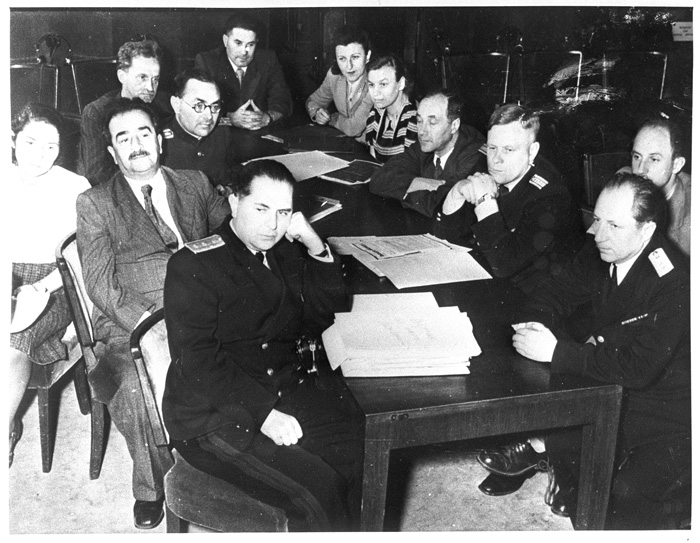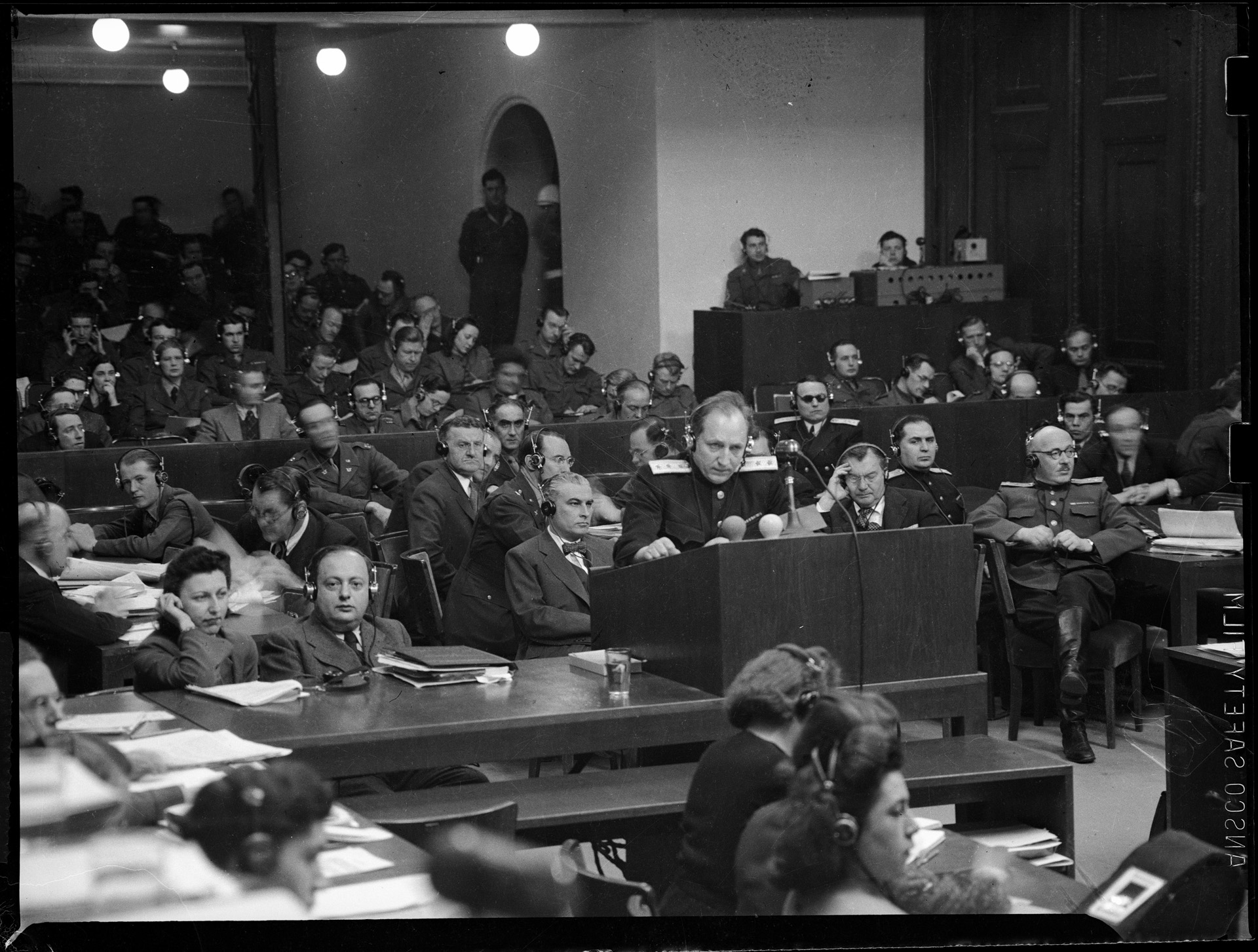Roman Rudenko
Roman Andreyevich Rudenko, 7th August, 1907 – 23rd January, 1981 was a prominent Soviet lawyer and statesman. He was born in a village near Kiev into a peasant family and joined the Communist Party in 1926 at the age of 19. In 1953 he became the Soviet Prosecutor General, a post he held until his death.
Procurator-General of the Ukrainian Soviet Socialist Republic from 1944 to 1953, Rudenko became Procurator-General of the entire Soviet Union after 1953. He is well known internationally for acting as chief prosecutor for the USSR at the 1946 trial of the major Nazi war criminals in Nuremberg. Roman Rudenko and prosecutors from the United States, France and Britain led the legal proceedings against Nazi Germany’s leaders for their crimes during World War II.
He played a major role in preparing the cases against Hermann Göring, Albert Speer and Rudolf Hess. The last word in the interrogation of Göring was given by Rudenko, with Alexander Zvyagintsev (?) stating “His questions put Göring in a pretty deep funk. The Reichsmarschall stopped his active resistance, changed his behaviour a lot. It was noted by all those present in the hall, Rudenko’s authority noticeably increased after that. Everyone began to talk about his high professionalism.”
On 29th July, 1946, General Roman Rudenko, the chief Soviet prosecutor, delivered the summation for the Soviet Union. His speech was four hours long. This short excerpt shows Rudenko’s call for the death penalty for all defendants: “I appeal to the Tribunal to sentence the defendants without exception to the supreme penalty – death. Such a verdict will be greeted with satisfaction by all progressive mankind.”
After the arrest of Lavrentiy Beria in 1953 following Beria’s role in the failed coup of the Soviet Union, Rudenko was a judge at the closed trial in which Beria, Stalin’s last secret police chief, was sentenced to death. In 1960, he acted as chief prosecutor in U-2 pilot Francis Gary Powers’ espionage trial.
 As procurator general of the Soviet Union, Rudenko played a major role in devising measures to deal with the growing dissident movement within the USSR.
As procurator general of the Soviet Union, Rudenko played a major role in devising measures to deal with the growing dissident movement within the USSR.

